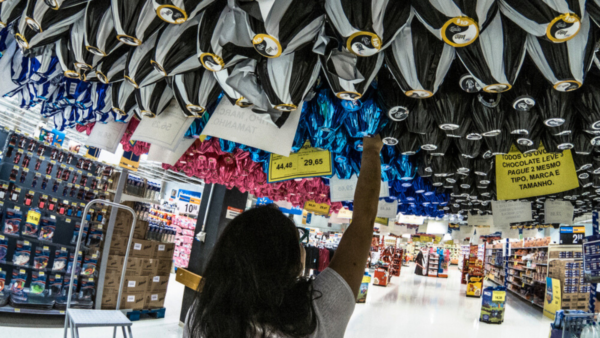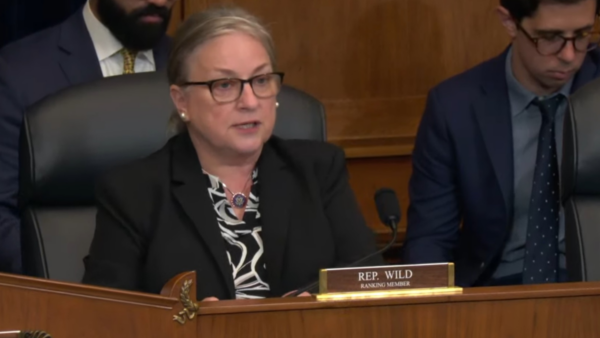It is not about denying the environmental problems and challenges Brazil faces — that are well-known worldwide — but about telling stories on how different industries and companies, following the best ESG practices available, have managed to build sustainable and thriving businesses “because” they were set up in Brazil. That is the main idea behind the Brazil Climate Summit Europe, a spin-off of the conference held in New York since 2022, which will take place on May 27 in Paris.
“The goal is to promote the country as a low-carbon solutions hub, to bring the country’s potential to light without hiding its problems. [This is necessary because] what we see today is that the difficulties are better known than the country’s strengths,” says Jorge Hargrave, director of Maraé Investimentos — the family office of Guilherme Leal, co-founder of cosmetics giant Natura — and one of the organizers of the event in New York and now in Paris.
Many hands are involved in organizing Brazil Climate Summit Europe, also being referred to as BCS Europe. The group organizing it is made of alumni and current students of Insead and HEC Paris, two of Europe’s most prominent business schools.
The conference is also backed by the Brazilian Embassy in France, the French Brazil Chamber of Commerce (CCIFB), the Brazilian Chamber of Commerce in France (CCBF), Brazil’s export promotion agency ApexBrasil, and the Boston Consulting Group (BCG), among other strategic partners. The Brazilian Report is the initiative’s media partner.
Much smaller than the event in the U.S., hosted by Columbia University for more than 500 people last year, the European conference will take place at the Maison de l’Amérique Latine for just over 100 guests — the organization is carefully selecting the participants of this first invite-only edition of the event. “In addition to the speakers and investors with operations in Brazil who will be on the panels, we plan to have more than 80 percent of attendees coming from Europe-based organizations.
All the largest French banks will be there, for example. That is crucial to achieving our second goal, which is to foster partnerships between the countries’ business ecosystems,” stresses Mr. Hargrave.
Having Brazilian speakers alongside European investors who have already done business in Brazil was also something planned for the event. “BCS Europe is being built upon dialogue and collaboration, so having an insider and outsider perspective on each of the panels, both explaining why they have chosen Brazil, will be instrumental,” says Mr. Hargrave.
The event’s opening session, “Why Brazil? Seizing Brazil’s Climate Potential,” for example, will feature Izabella Teixeira, Brazil’s former Environment Minister, and Laurence Tubiana, the CEO of the European Climate Foundation and a key architect of the landmark Paris Agreement, side by side.
Cases of companies such as cosmetics manufacturer Natura, chocolate manufacturer Dengo, and A10 Invest — which owns 46 percent of the mining company Sigma Lithium — will also be among the conference’s leading attractions as they are practical examples of Brazil as a hub of climate solutions.
“We conceived A10 Invest, an impact investment firm, nearly 12 years ago when ESG was not yet a thing. What I’m going to show is that I, as a financial sponsor, investing in a business with a highly polluting component, which is mining, helped to create a highly profitable global business in Brazil, which is also the first in the industry to be born net-zero,” says Marcelo Paiva, co-founder at A10 Invest and co-chairperson at Sigma Lithium.
Sigma’s plant, located in the Grota do Cirilo Project, in Araçuaí and Itinga, in the Jequitinhonha Valley in the state of Minas Gerais, was in a pre-operational phase when the collapse of the Samarco dam in Mariana in 2015 occurred. The mining sector was facing difficulties in financing new projects after the tragedy killed 19 people and caused untold environmental damage.
“But as an impact investor we also have to deal with primary sectors; they cannot be avoided. What we can do is follow the best practices possible and make it better,” says Mr. Paiva. The Jequitinhonha Valley is where 85 percent of Brazil’s known reserves of lithium, a key element in the production of EV batteries, are located.
A10 Invest decided, for example, that it would only work with zero tailing, meaning it would have no tailings dams on site. Instead, Sigma’s tailings are dry stacked and utilized for the recovery of waste minerals, making it an environmentally friendly operation. The production process of its “green lithium” does not involve chemical agents, and the water used in its purification process is recyclable.
“These characteristics of Sigma’s operations in Brazil came from not so obvious decisions from a traditional financial point of view. Some of them reduced the company’s exploration area, for example, to preserving the environment, more specifically a river that passes through the plant, but which contributed to the sustainability and low impact of the operation in the medium and long term,” highlights Mr. Paiva, adding that, as an impact investor, his goal is “to repeat” Sigma’s success in other upcoming A10 Invest deals.
Green fuels and biofuels are also among the main topics of the event, with a panel with the participation of Caio Dafico, investments and business development director at Atvos (formerly known as Odebrecht Agroindustrial), Brazil’s second-largest ethanol producer. “I am responsible for the company’s diversification of fuels and markets, and I am leading two projects that, I am sure, will be of interest to those attending the event,” he says.
The company, now with Mubadala Capital as its main shareholder with a 31.5 percent stake, is investing heavily in renovating its sugarcane fields, new plantations, and two biofuel projects: one focused on biomethane and the other on ethanol-based sustainable aviation fuel (SAF).
Earlier this month, Atvos announced plans to build the country’s largest biomethane plant in Mato Grosso do Sul state, capable of producing 28 million cubic meters of biofuel from sugarcane waste. Construction of the factory, requiring at least BRL 350 million in investments, is set to begin later this year.
Additionally, the company has been exploring the possibility of building a factory for ethanol-based SAF. Atvos aims to be the world’s first to produce the fuel on an industrial scale.
“My goal is to highlight Brazil’s potential to accelerate the global energy transition through biofuels. We can do this starting with first-generation biofuels and going beyond, as Atvos’ new projects demonstrate,” says Mr. Dafico.
While some analysts in Europe view the biofuels route with reservations, believing it lacks a sufficiently low carbon footprint and competes with food production, Mr. Dafico and others aim to show that these first-generation biofuels, abundant in the global South as well as the US and Canada, are the best way to accelerate the energy transition. “Full decarbonization is not achievable solely through waste [second-generation] biofuels. Brazil addresses the issue of scarcity by tripling its production through increased productivity and land restoration, without resorting to deforestation. Additionally, first-generation ethanol is three to four times cheaper than second-generation’s, all within a country boasting a clean energy matrix,” he explains.
With over 85 percent of Brazil’s power coming from renewables – a crucial factor for green hydrogen production, another key topic at the event.
The latest developments of regulatory aspects linked to environmental preservation and low-carbon business financing will also be an important part of Brazil Climate Summit Europe. For Mr. Hargrave, the launch this week of the first practical step of an FX hedge program, entitled Eco Invest Brasil, to protect investors of sustainable projects in Brazil from the risk of currency fluctuations, is a good example of how both the government and the business ecosystem are coming together to find the regulatory solutions needed.
“I remember Mark Wiseman, a Canadian financier who is currently the chair of the Alberta Investment Management Corporation, and was also the CEO of the Canada Pension Plan Investment Board and a manager at BlackRock, saying during the first Brazil Climate Summit in New York, that FX risks were among the things that Brazil had to deal with to attract more foreign investors. Well, now we have a practical answer for him,” says Mr. Hargrave.
The idea, announced in February during a G20 meeting of finance ministers in São Paulo, gained a presidential decree this week.
The Finance Ministry and the National Monetary Council (CMN) are now defining rules for the operationalization of the program, which, among other things, will use the Inter-American Development Bank (IDB) as an intermediary, leveraging its AAA rating to contract hedge protection from an international bank under better conditions and transferring this advantage to local institutions that finance green field projects.
The bank intends to use up to USD 3.4 billion for this.










 Search
Search






































